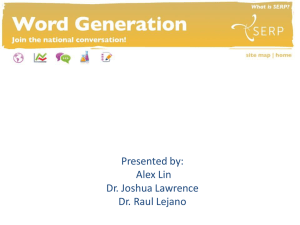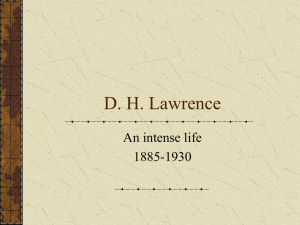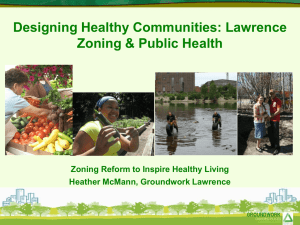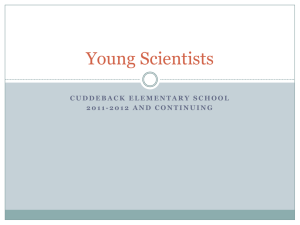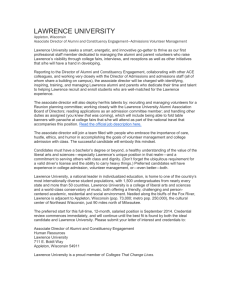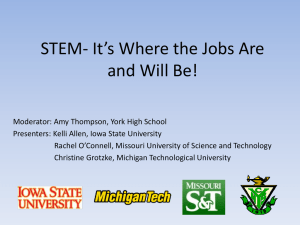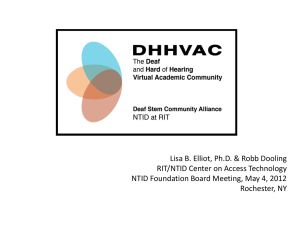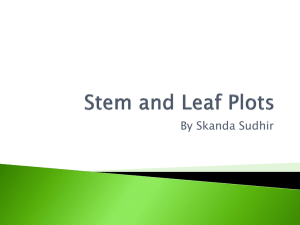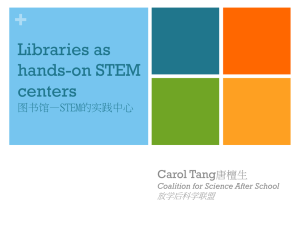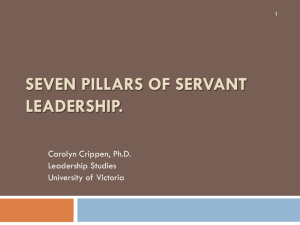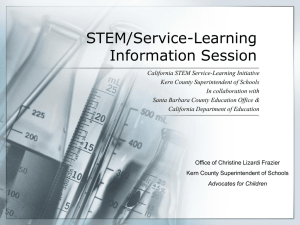Examining the Effects of the Lawrence Math and Science Partnership
advertisement
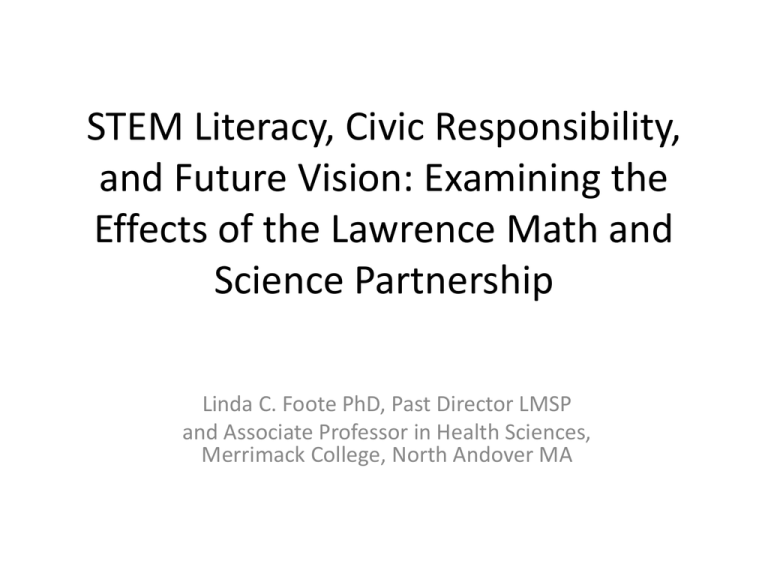
STEM Literacy, Civic Responsibility, and Future Vision: Examining the Effects of the Lawrence Math and Science Partnership Linda C. Foote PhD, Past Director LMSP and Associate Professor in Health Sciences, Merrimack College, North Andover MA Lawrence Math and Science Partnership Exposition Partnership between Merrimack College and afterschool programs sponsored by middle schools or youth agencies in the city of Lawrence MA, est in 2003 • Middle school students were recruited from charter schools, Boys & Girls Club, Asian cultural center and Hispanic youth development program. • 273 middle school youth filled ~1000 slots over 3 years of the study. • 434 undergraduate students were recruited and supported by the Stevens Service-Learning Center and participated in a number of capacities; as mentors, curriculum development and training, logistics and transportation, summer camp counselors, and research assistants. Lawrence Math and Science Partnership - Exposition cont. • Administrative and logistical support from the Stevens Service-Learning Center. • Directed by Assoc. Professor in Health Sciences (.25 - .5 FTE dedicated to LMSP) • Established in 2003, the LMSP originally funded by Corporation for National and Community Service: Learn and Serve America • Additionally funded by corporations, foundations, and private donors. • Data described herein are based on the first 3 years of operation, 2003- 2006. • Happily, the Partnership continues and is funded by the College and corporate and private donors. Lawrence Math and Science Partnership - Service-Learning • Undergrads enrolled in Health Science, Education, Liberal Arts and Business courses elected to add a S-L component to their course work. course work + specific STEM training + teaching, youth development, and cultural diversity tips filled community-based need for content and higher education role models undergrads reflected on their roles as instructors and mentors and wrote and presented their experience - discovering how their service informed their learning and how their learning informed their service. Lawrence Math and Science Partnership - Characteristics of the Partnership • Trained undergrads were transported weekly to the afterschool programs to guide middle school youth in hypothesis-based experiments and activities that featured STEM content. • Focused on constructivist and active learning, youth were presented background, they then made observations, formed hypotheses, gathered, analyzed and presented their data. • Week-long summer camp programs provided youth with transportation to the college campus, STEM curriculum, team building, and fitness and health activities. • Year long program fostered –STEM literacy as well as intrinsic interest in STEM, postsecondary education, future vision and career goals. Lawrence Math and Science Partnership -Challenges • Semester-long commitment of professors and undergrads in community service and S-L projects. Some see it competing with personal basic science research interests. Divisional leadership resistant to dedicate FTE. • S-L Center has only so much capacity to provide logistical support. • Community agencies loose site of “partnership” and weaken in recruitment, oversight, training efforts. • Curriculum development had to be ongoing. • Fund raising and grant reporting was time consuming. • Lawrence Math and Science Partnership Lessons Learned Undergrads – – – – – Service to community Personal development Cultural awareness Making new college friends Pre-service teaching experience • Middle School Youth – Inquiry-based STEM Literacy – Future Vision and goals for post- secondary education • College Community – Expanded S-L Opportunities – Student leadership – For Pre-service teachers, fosters knowledge base of S-L and a new pedogogical approach to teaching and learning

